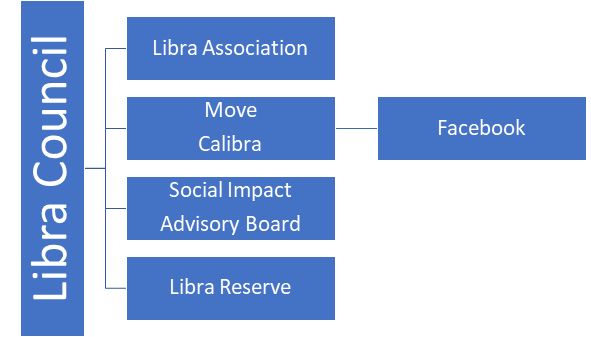On June 18, Facebook released it’s white paper
on the new digital currency, Libra. The
news led David Marcus, Chief Executive Officer of Calibra, to appear before
the House Financial Services committee on July 17 - a day after appearing
before the Senate Banking Committee.
House Financial Services Committee members
questioned whether Facebook would have overwhelming control over the Libra Association’s 27 other members and
if they were to be trusted with 2.7 billion users’ financial data, given past privacy violations.
Facebook’s trustworthiness has been in
question since the 2016 Cambridge Analytica data scandal. Most recently, charges brought in March by
the Department of Housing and Development concerning Facebook's alleged violations the Fair Housing Act
have not helped the firm gain favor with the public.
Last month, Facebook was removed from the S&P
ESG 500 index because of privacy concerns and a lack of transparency as to why
certain user information is collected and shared. These issues earned the company a 22 and 6 in
social and governance sub scores, respectively, against an 82 environmental sub
score - this last score being easy for a technology company to achieve.
Marcus pointed out that the social media
platform is just one of 28 current Libra Association members - they hope to
grow to 100 members - and lists Mercy Corp and Women’s World Banking as groups
capable of combating any use of the digital currency for human rights
violations.
Michigan representative Rashida Tlaib pointed
out that Marc Andreesen, co-founder of Andreesen Horowitz, sits on the board
of Facebook; Mark Zuckerburg, CEO of Facebook, sits on the board of
Breakthrough Initiatives; Peter Thiel, co-founder of PayPal, sits on the board
of Facebook; Ben Horotwitz, co-founder of Andressen Horowtiz, sits on the board
of Lyft; David Marcus, the witness, sits on the board of Coinbase. All are founding members of the Libra Association.
These close
relationships do nothing to soothe fears that a nexus of power exists within the Facebook network, controlled by a few individuals. Of course, this also does little to address the problem of
diversity in the tech industry.
As pointed out at an earlier Diversity and Inclusion subcommittee hearing (subcommittee of the Financial Services Committee), a
lack of diversity tends to occur when non minorities in positions of power look to fill leadership
rolls with those they already know. People tend to associate with
those who look like themselves. Predominately
white and male organizations inviting other predominantly white and male
organizations to have a seat at the table does nothing to bring diverse
thoughts and perspectives into new innovations.
As stated in the Libra white paper and subsequent
press release, a social driver for Libra has been that it will provide easier
access to those who have historically been excluded from using financial institutions. Marcus cited the example of
a young woman sending money from the US
to her loved ones in another country without the wait and fees that
might apply to other methods of money transfer. Harping on the 1.7 billion
unbanked and underbanked individuals in the world, he returned to the social service that Calibra might bring to a broken system.
 Ohio’s Joyce Beatty (pictured with the author at left) pointed out that it
“wasn't very unique” to mention 1.7 billion globally who lack access to a bank
account without details on how those unbanked would have access to Libra. Many
of Marcus’ responses to the lack of clarity that still exists left the burden of clarifying exactly how on this would work on regulators.
Ohio’s Joyce Beatty (pictured with the author at left) pointed out that it
“wasn't very unique” to mention 1.7 billion globally who lack access to a bank
account without details on how those unbanked would have access to Libra. Many
of Marcus’ responses to the lack of clarity that still exists left the burden of clarifying exactly how on this would work on regulators.
Pressley asked how Libra would serve the
unbanked, who lacked a bank account to purchase Libra digitally,
but admitted that “the reason we are here is because the Federal Reserve has failed” to provide a safe and secure system to access and move money.
but admitted that “the reason we are here is because the Federal Reserve has failed” to provide a safe and secure system to access and move money.
Facebook’s altruistic intentions aside, the
question of how they planned to benefit from Libra was posed. Marcus described two ways Facebook will make money from the new digital
currency:
- Libra will aid 90 million businesses in transacting with one another. More
consumers on the platform will drive small businesses to expand, and as
they expand, they will purchase more advertisements with Facebook.
- As trust in Libra is earned, services will be offered in partnership with banks at lower cost that will add revenue.
“What would it mean for the world if everyone
everywhere could be part of the global economy with access to the same
financial opportunities?” Mercy Corps website expressed an optimistic vision of the
private, public and social sectors working together to solve the existing
problems of inequality. Many other
questions were left unanwered after the exhaustive hearings, with more hearings
to come. Questions concerning currency
manipulation and social engineering still need to be addressed.
For now,
the social benefits of Libra are difficult to verify. Time will tell if Libra leads to a
more equitable financial system.
